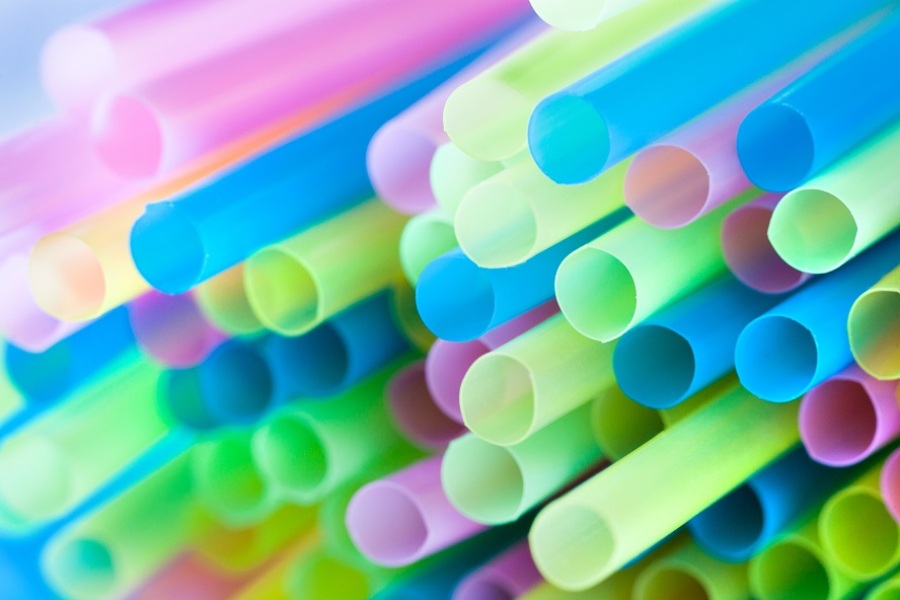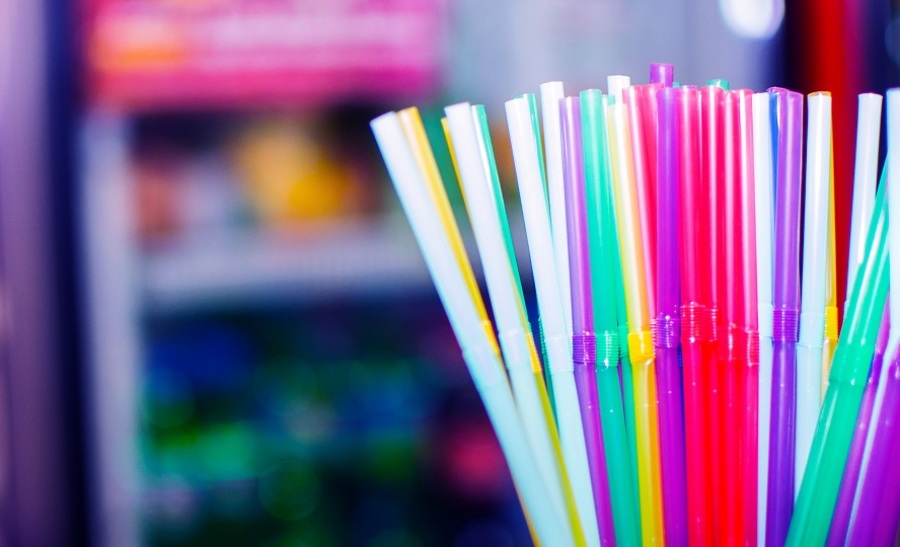
Starting small is a common mantra in environmental efforts, and the newest eco-friendly push is to eliminate single-use plastic straws.
Canadians use an estimated 57 million straws per day, which fill up landfills and make their way into the ocean.
Eliminating plastic straws has become popular in recent months due in part to trendy videos of reusable metal straw products making the rounds on social media and platforms such as Buzzfeed. A 2015 video of marine biologists painstakingly removing a plastic straw from a wild sea turtle’s nostril has also resurfaced, and the viral video has garnered over 24 million views to date.
Plastic straws prove difficult to recycle as they usually fall through screens on recycling sorting lines. And when at a fast food or fast casual restaurant, the majority of consumers throw plastic straws away rather than recycling them.
Thousands of individuals have pledged to reduce their plastic straw use by carrying metal straws or refusing plastic straws in restaurants. Restaurants are beginning to join the movement too, as well as entire cities across Canada.
Franchises Ditch the Plastic Straw
Boston Pizza, a casual dining pizza franchise, made the switch to biodegradable straws in January 2017. The franchise’s 380 restaurants across Canada will now be free of plastic straws. The brand recognizes that this is no easy feat for large franchise brands like theirs, especially when the franchise owners are the ones fronting the added costs.
Spokesperson for the brand Alexandra Cygal commented on the change to the Toronto Star, saying “We want it to be great for the environment, and definitely the kind of responsibility that we bear, we also want to be sure that the costs aren’t too high because we’re passing those down to the franchisee.”
A&W Canada has become the first fast-food chain in North American to eliminate all plastic straws, with the goal to eradicate the single-use item from all of the franchise’s 925 locations by the end of 2018. Like Boston Pizza, the burger franchise will offer guests biodegradable, compostable, and sustainably sourced paper straws. This switch is projected to keep 82 million plastic straws out of landfills every year. The transition is set to begin in August.
Even brands that currently provide biodegradable straws are starting efforts to wean consumers off the straw habit. Browns Socialhouse, a casual dining restaurant and sports bar franchise, began their Ditch The Straw initiative in May. The franchise’s straws are currently biodegradable, but they are encouraging their patrons to go straw-free and are providing biodegradable straws by request only.
Canadian Cities Go Plastic Straw-Free
Vancouver is the first major Canadian city to ban plastic straws altogether as part of a city-wide ban on single-use items that also includes foam cups and takeout containers. The major changes will come into effect on June 1, 2019, and the city aims to be waste-free in regard to food-service outlets by 2040.
The city is considering options for “Made-in-Vancouver” reusable straws, flexibility during the transition period, and educational support for the changes. Businesses that do not comply with the Vancouver plastic ban when it takes affect may find themselves facing a fine.
Speaking with The Globe and Mail, Ian Tostenson, the president of the BC Restaurant and Food Services Association, said of the change: “Restaurants will make the adjustment and supply chains will make the adjustment,” he said. “Change like this can be costly and can be inconvenient, but if we keep this bigger picture in mind, especially in terms of the environment, it’s a no-brainer.”
In Winnipeg and Saskatoon, change is championed by the business owner. As more popular local restaurants forego the plastic straw, others are beginning to follow their lead. Individual restaurants are setting their own straw-free goals, and though Winnipeg Mayor Brian Bowman has said a ban is not something the city has looked into, he encourages other businesses to consider the move for their business.
Two major Alberta cities are going head-to-head with a straw-free challenge. Edmonton and Calgary will both be holding The Last Straw Campaign on July 14 when bars and restaurants will eliminate plastic straws for the whole day. The competition was organised by Waste Free Edmonton and Plastic Free YYC. The city that gets the most bars and restaurants to ditch the plastic straw on July 14 gets to take home the title of Alberta’s 2018 Last Straw Champion.

Finding a Plastic Straw Alternative
One of the main challenges facing restaurant franchises finding alternatives to plastic straws is the cost. Buying biodegradable straws can cost businesses five times that of a plastic straw, and the manufactures that stock biodegradable straws are fewer than those that stock plastic.
But going completely straw-less doesn’t appear to be a viable option at the moment either. For all the consumers who are championing the plastic straw ban, there are still consumers and businesses who rely on straws.
Drinks like smoothies and bubble teas would be a difficult sell without a straw. As Vancouver prepares for its city-wide ban on single use items, bubble tea vendors wonder how their business will fare without plastic straws. Bubble tea, a drink invented in Taiwan with a growing fan base in Canada, is a smoothie-like mixture with chewy tapioca balls at the base.
Plastic straws are currently the most efficient way of consuming the tapioca balls, with paper straws being made too narrow and metal straws being too costly for the business. As the global fight against plastic proceeds, Canadian bubble tea franchises will be looking toward Taiwan, which announced a ban on single-use plastic straws earlier this year, to see how they address the market issue.
Those with disability and reduced mobility are finding concern with the plastic straw ban. While bans are a monumental step toward sustainability, it can also negatively impact accessibility for those with dexterity issues. Cities, like Vancouver, will need to continue to consult with these interest groups to address concerns before a full ban is enacted.
The solution many businesses have been turning to is to simply not offer up straws but to provide them when requested. Many people will use a straw because it’s there but may not be inconvenienced by a lack of straw. By not automatically handing out plastic straws when a customer gets their drink, businesses can reduce waste but still be able to provide them to the consumers who do want, or need, a straw.














